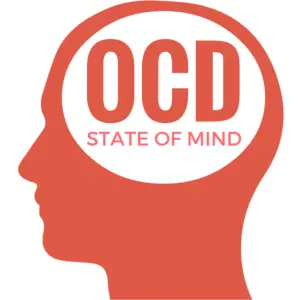OCD and Autism Link: Are You Organized or Obsessed?
I’ve been told that obsessive-compulsive disorder or OCD and autism often go hand in hand. Some non-medical experts have called me OCD myself, and interestingly enough, it has to do exactly with my hands.
But I think the jury is out. I’ll admit I have gotten over-zealous in my life with germs, too frequent hand washing, and how I organize things.
I agree that there could be an OCD and autism overlap. Some of it may very well be me and my quirks vs. a true disorder.
To my defense, in 2020 when Covid-19 was dominating the news and we all wore masks, stayed indoors, and avoided people and stores, I’ll admit that it freaked me out a bit.  The news and everyone I knew was saying to thoroughly wash your hands, and I did it to the point where my skin on my hands up to my elbows got really red.
The news and everyone I knew was saying to thoroughly wash your hands, and I did it to the point where my skin on my hands up to my elbows got really red.
But I still personally think while there was a definite possibility of an autism and OCD link, it could also be circumstantial of the times.
It is possible that is was a reaction to a scary time, especially when people were getting sick and dying from COVID.
And my hands are just fine now. But it doesn’t mean that I sometimes don’t have the overwhelming need to go wash them. So, do I join the ranks of someone with autism and OCD in adults?
OCD and autism are considered a common co-occurring disorder or dual diagnosis. While symptoms may overlap, they are two different conditions. Both may show repetitive behaviors, but the reason behind them are very different.
So, Maybe or Maybe Not OCD and Autism
I believe in general that while I may do some things that annoy others, they aren’t unusual to me. Personally, I think my habits are for my own betterment instead of being part of the group of having both autism and OCD in adults.
For example, I’m organized, and I have been since I was old enough to really understand my surroundings and room and possessions. I am organized because I think it is easier to find what I need. And being organized makes my space a lot nicer.
So, the big question is whether a person exhibiting an OCD and autism overlap is organized or obsessive?
Other members of my family were kind of slobs growing up and it was important for me to have places for my things.
But who is “normal” and who isn’t in that regard? I could always find my stuff. My brother and sister couldn’t say the same.
In fact, people have always commented and complimented me for keeping things organized. To me, it’s a strength of having autism and OCD in adults.
My teachers said I had good systems for keeping up with my school work and knowing where things were. And while other kids were pretty messy, I was neat.
Parents told me me since I was little that they wished their kids could take lessons from me or tips on keeping it all together.
OCD and Autism Overlap: Don’t Touch My Stuff
I do get frustrated if someone comes in my place (room, house, car) and starts moving everything around.
While it may seem to them that they are helping me, the truth is that it really bothers me.
I have a system to keep things efficient, so it’s annoying when someone shows no regard for my preferences. Keeping things together makes sense to me and I am proud of myself because of my organizational skills.
OCD Treatment for When Behaviors Become Too Extreme
There is a point where being organized goes too far, and it negatively affects a person’s life as well as those who are around that person.
I know first hand, because I know that I can go too far with my need for perfection.
But, from what I have learned, read, and from what I have learned from experts I have spoken with through the years, my affinity for routine and neatness does not translate to my having an OCD and autism overlap.
According to some medical experts, a key component of OCD is “distress.” To be officially diagnosed, you need to meet certain criteria, which include obsessions and compulsions that cause significant distress or have a negative impact on your life.
Additionally, these obsessions and compulsions are extremely time consuming as well. So, again, I am definitely no medical expert, and I can’t speak about anyone’s experiences other than my own.
So, yes, I may be quirky on hand washing and have routines, but it sounds like I don’t meet the criteria for autism and OCD in adults. Of course, everyone’s journey is different.
If you are a person with autism like me, and things like becoming overly organized to the point of being disruptive, or getting upset when someone moves your stuff, here is my advice.
And this applies to whether you officially have both OCD and autism or have traits of obsessiveness and/or compulsiveness in general along with autism.
- Take a step back from the situation.
- Take a breather and walk away, either physically or mentally. (Don’t be rude, just distract yourself.)
- Relax. Remind yourself that it is okay. If you have certain absolute places for things, be sure it is okay and safe and not in the way. Then tell your parents or loved ones that it is your spot.
If You Know Someone With OCD and Autism
I do get asked the question of whether I have an OCD and autism overlap, or how I manage my traits of being organized to the point where people take notice.
I’d like to tell parents or autistic children or someone with a friend who is autistic to be be very respectful of boundaries when it comes to an autistic person’s stuff.
5 Tips for Helping Someone with OCD and Autism Overlap
There is a simple approach to having a better relationship with someone who has OCD and autism:
- Make sure you are always respectful and aware of their space and things.
- Don’t pick up after them and move things that you think are the correct spots for someone. Ask that person to move something if needed or whether they can think of another place to put something that could be in the way.
- Be aware that touching their things could be disagreeable to them. I am always open to someone asking me to do something, but I would rather do it for myself than to have it done for me.
- Don’t throw around the term “OCD” just because someone is super organized or likes cleanliness. After all, is really a bad thing?
No one likes to be teased (or taunted) about behaviors. Unless it is really overboard, unsafe, or really bothersome then just accept that person for who he or she is.
- If you are a parent of an autistic child who is overly neat, be appreciative that they aren’t super messy. See, there are good things that come with order and organization.
Other Common Autistic Behaviors
There are many behaviors associated with having autism. Keep in mind that everyone presents differently, which is why it is caused a spectrum disorder. However, there are common autism behaviors. Learn more about them.
- Break Free From These 7 Unhealthy Coping Mechanisms
- Autism and Eye Rolling: Why It’s Odd, But Perfectly Okay
- Eye Contact Avoidance: 8 Best Ways to See Eye to Eye
- 10 Proven Techniques for Managing Autism and Sensory Issues
- Understanding Neurodiversity: Uprising of the Neurodivergent
- Autism and ADHD: Making Sense of the Overlap
- Autism Masking & Code Switching: How to Redefine Acceptance
- Autistic Stimming Behaviors: Why We Do and How It’s Important
- Autism in Sports: Hyper-Focus Can Be A Commanding Competitive Advantage
- Obsessive Skin Picking Disorder: Finding A Better Self-Soothing Option
